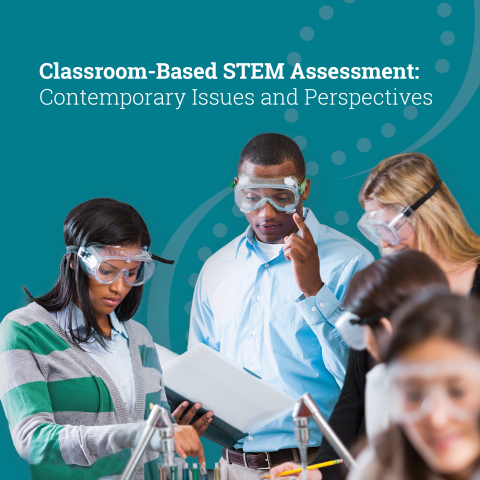International Commission on Mathematical Instruction 15th International Congress on Mathematical Education; Sydney, Australia
To learn more, visit https://icme15.org/.
To learn more, visit https://icme15.org/.
To learn more, visit https://www.amte.net/content/2024-annual-amte-conference.
To learn more, visit https://www.unr.edu/pmena.

This report takes stock of what we currently know as well as what we need to know to make classroom assessment maximally beneficial for the teaching and learning of STEM subject matter in K–12 classrooms.
Questions regarding the construction of mathematical authority have implications for learning, specifically for students’ views of themselves as mathematics learners and doers with valuable contributions. We consider the ideas proposed by eight first-grade students who had the most airtime during 12 lessons of a classroom teaching experiment. We noted when ideas were proposed and how those ideas were responded to.
Questions regarding the construction of mathematical authority have implications for learning, specifically for students’ views of themselves as mathematics learners and doers with valuable contributions. We consider the ideas proposed by eight first-grade students who had the most airtime during 12 lessons of a classroom teaching experiment.
Our primary goal in this project was to further develop, refine, and evaluate a research-based STEM learning tool (i.e., block play) that tests theories of mathematical learning. Specifically, we tested the impact of different types of block play (free play, semi-structured) on early mathematics and are working towards identifying potential mechanisms (e.g., mathematical language, executive function) underlying these relations.

The need for mathematical modeling is vital in answering critical questions like disease spread and climate change, but beginners lack the necessary skills to plan, organize, and execute such tasks. Also, current tools are insufficient for optimal learning. To address these issues, we're developing a web-based technology (M2Studio) and a 10.5-hour curriculum to introduce students to mathematical modeling using dynamically linked representations. This three-year project aims to enhance students' modeling skills and understanding.

The major goals of the project are to develop and implement an innovative fully online video-based model for professional learning of mathematics coaches in rural districts who may lack access to such opportunities.
Our professional model has three components: (a) an online course on content-focused coaching, (b) one-on-one video-based coaching cycles, and (c) an online video coaching club. Mentor Coaches (project personnel with expertise in coaching) support Coach Participants and are themselves supported by a Lead Mentor Coach.

The project aims to understand how engagement in learning mathematics is enhanced by a digital collaborative platform with an embedded problem-based curriculum and a digital mathematics notebook. We investigate how engagement and learning is affected over a year-long seventh grade course. Using digital notebooks, platform analytics, and classroom artifacts, we report on a set of initial design characteristics for digital platforms that support student collaboration in learning mathematics.

The purpose of the Animated Contrasting Cases in Geometry (ACinG) research is two-fold: To design animated mathematics curricular materials for geometry that focus on directly comparing different approaches to solving the same geometry problem, and to examine the effects of these materials on student learning of geometry.
